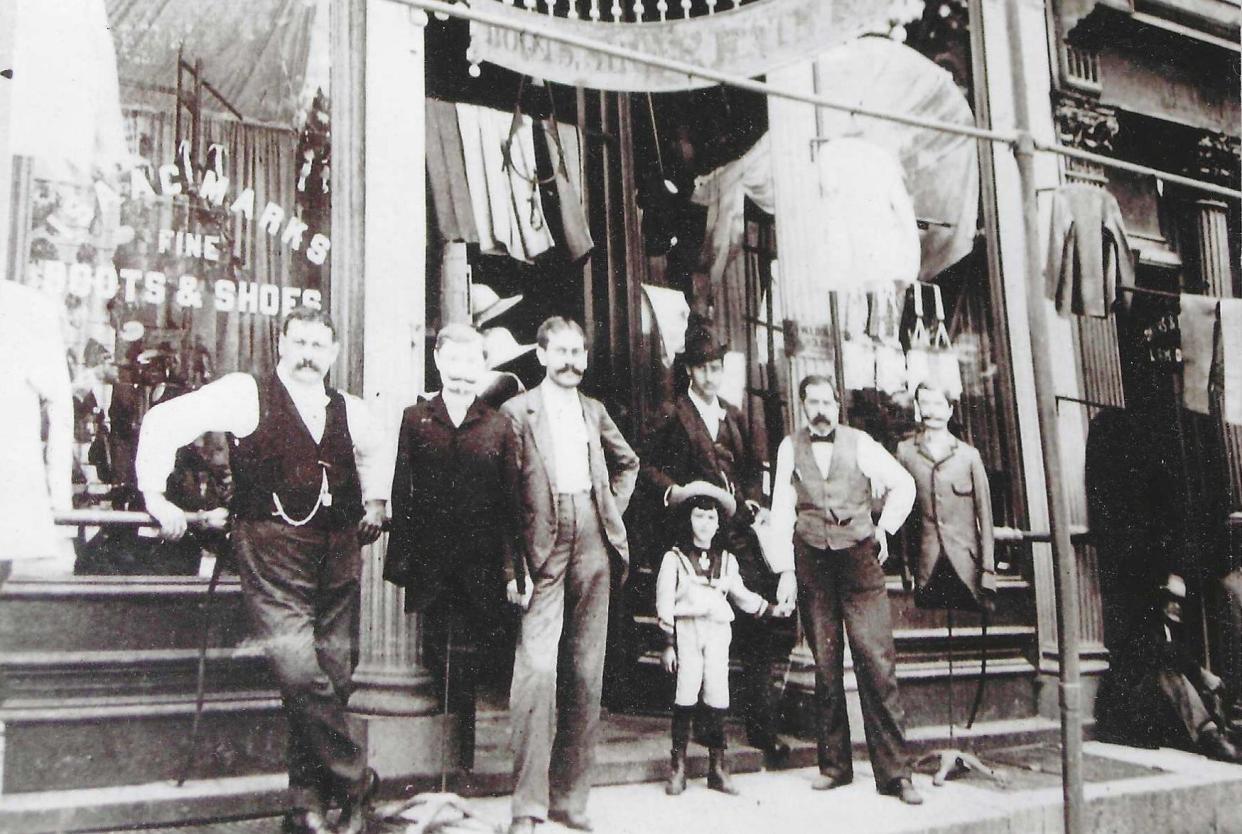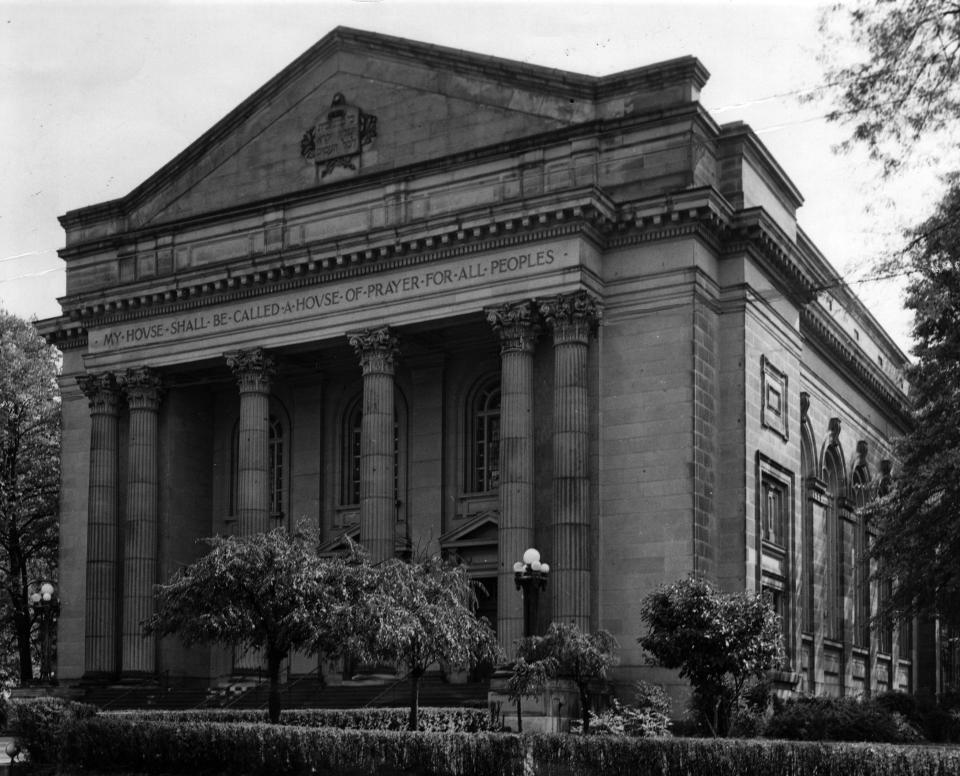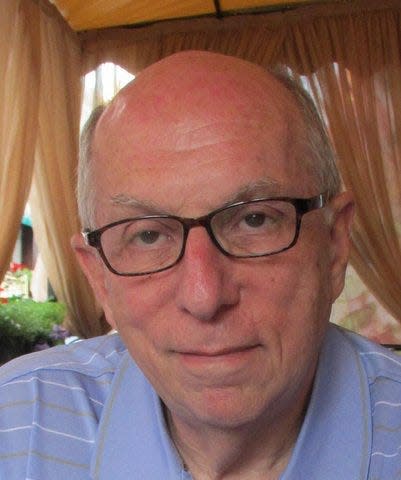Opinion: Deep family roots, pride in my Cincinnati Jewish community

Editor's note: This is one in a series of columns that are appearing monthly during the yearlong Jewish Cincinnati Bicentennial.
My great-great grandfather, Henry (Hirsch) Marks, became a Cincinnatian in 1851, and almost immediately became an active member of the Jewish community. Hirsch's involvement in the community, I now realize, has made me a better Jew and a better person because, as I learned about him and his wife, Babette, and about his son, Isaac, and Isaac's wife, Jennie, I learned how my family and I came to be Reform Jews, giving me yet another reason to celebrate being an American.
I wonder what propelled Hirsch to settle in Cincinnati, a center of American Jewish life in the 19th century. His Jewish faith? Certainly, that’s what led him, almost immediately upon his arrival, to join Kehal Kodesh Bene Israel – the Holy Congregation of the Children of Israel, the oldest Jewish congregation west of the Allegheny Mountains. Today, we know KK Bene Israel as Rockdale Temple in Amberley Village.
It hit me one Friday night, while sitting in Sabbath services, that Hirsch had prayed the same prayers about 125 years earlier in the same congregation in which I found my own religious comfort. Wow! More than a century of my family belonged to this congregation, searching together to find our ties to an eternal spirit. Hirsch joined the board of KK Bene Israel, and perhaps that is what inspired me to become active in Jewish leadership as well.

Hirsch and Babette – great-great grandparents whom I never met, of course – taught me by their example the important concept that Judaism is a community.
Hirsch was an enterprising man. He started as a tailor, then went into the wholesale clothing business and brought his third son, Isaac, into the shop with him. They sold products to, among others, Jewish peddlers who walked through parts of Ohio, Kentucky and Indiana with gigantic packs on their backs or with hand-pulled carts. Their life was hard, selling everything from pots and pans to cloth to ready-made clothing on farms and villages throughout the area. Hirsch and Ike also sold to smaller merchants throughout the region.
On Friday nights and on religious holidays, Hirsch and his family undoubtedly attended services at KK Bene Israel’s first three permanent homes – two located Downtown at Sixth Street and Broadway and the third at Eighth and Mound streets in the West End. They were joined by Isaac's wife, Jennie, and her family, who made and sold shoes at Ehrlich's Shoes at Northern Liberties (Liberty Street) and Main.
The family thrived. Isaac learned the retail business and opened a store in Georgetown, Kentucky, officially called "Isaac Marks Dry Goods." But just as in towns throughout the middle of the country, locals called it "The Jew Store" – a general dry goods shop operated by a Jewish family. There was Greenbaum’s in Paducah, Kentucky; Goldsmith’s in Memphis, Tennessee; Stein’s in Greenville, Mississippi (later called Stein Mart); and Kaufman’s in Great Falls, Montana.
Ike brought into the family business his son, Joe – my grandfather – the young man with the bushy mustache shown in front of the store in the photo we cherish. Isaac’s in-laws – the Ehrlichs – and Uncle Marcus Waterman also worked there.
But that was it. There were no other Jews in town. No Jewish community.
For readers who don’t know the customs of Judaism, there is a tradition that there must be a minyan – 10 adult men – in attendance to say prayers as a community. Our sabbath begins at sundown Friday and continues for 24 hours.
How could 10 Jewish men come together in Georgetown for worship, when there were only three or four in town? The closest synagogue was in Louisville or Cincinnati, almost 100 miles away, at a time when a train moving at 25 miles per hour was an absolute wonder.
Moreover, how could a merchant survive in a farming community if the store was closed on Saturday, the busiest shopping day of the week?
It was Ike Marks and men like him after the Civil War who created a new form of Judaism to adapt to the changing realities of their world. They reformed the traditions, creating American Reform Judaism.
Some 150 years later, I realized what a blessing it was to have this congregation around me as well as Cincinnati’s Jewish community, creating better lives not only for Jews, but for the broader community itself.
Jennie and Ike had 13 children – 11 of them lived to adulthood. They scattered across the new country, carving out lives for themselves from the frontiers. I’ve been fascinated to learn that each of them remained Jewish in a country where Jews have never made up more than 1.5% of the population, despite tough times for Jews.
Their fortitude made me a better Jew and a better person. Their story is the story of a family, a Jewish community, a city and a nation, struggling and prospering for the good of everyone.
Edward G. Marks, a retired Cincinnati lawyer, is a lifelong member of Rockdale Temple. He was a founder of Jewish Cemeteries of Greater Cincinnati Inc. and served as its first president. He also has served on the boards of Rockdale, Jewish Family Service of the Cincinnati Area and the Midwest region of the Union for Reform Judaism. He and his wife, Anita, now live in Tampa Bay, Florida, where he serves as president of Temple Ahavat Shalom.
#
Details about storefront photo: This general dry goods shop in Georgetown, Kentucky was owned by Isaac Marks, the great-grandfather of Edward G. Marks, who wrote this column. The photo was taken between 1895 and 1900.

This article originally appeared on Cincinnati Enquirer: Opinion: Deep family roots, pride in my Cincinnati Jewish community

